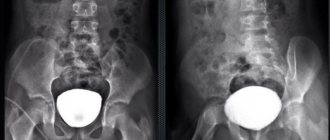Registration at place of residence: main points
The concept of “registration at the place of residence” has replaced the concept of “permanent registration”. Today these two definitions are used in parallel. The place of permanent registration of a particular person is a house, apartment, or other residential premises.
For a citizen to legally reside at a specific address, for example, the following grounds are needed:
- the housing is owned by him and his family members;
- apartment or house is rented;
- social hiring and other grounds provided by law.
Is it necessary to register a child at his place of residence?
For minor citizens of the state, registration is also mandatory.
This requirement is reflected in the following regulations:
- Civil Code of the Russian Federation (Article 20);
- Family Code of the Russian Federation;
- Order of the Ministry of Internal Affairs of Russia dated December 31, 2021 No. 984 “On approval of the Administrative Regulations of the Ministry of Internal Affairs of the Russian Federation for the provision of public services for registration of citizens of the Russian Federation at the place of stay and place of residence within the Russian Federation”;
- Rules for registration and deregistration of citizens of the Russian Federation at the place of stay and place of residence within the Russian Federation (approved by Government Decree No. 713 of July 17, 1995).
These documents regulate all issues related to registration (both permanent and temporary); in particular, they provide for the registration of children at the place of residence of one of the parents. The child’s place of residence, according to Article 20 of the Civil Code of the Russian Federation, is considered to be the place of residence of the parents (or one of them, if family members are registered in different places).
Some parents are thinking about the question: is it necessary to register a child at all, since an additional registered person affects the calculation of standards for the consumption of utility services and other indicators? Legislative answer: yes, it is necessary. Firstly, there are penalties for a child’s lack of registration; secondly, without formal registration it is impossible to register at a clinic, enroll in a kindergarten or school, apply for benefits and required material payments, etc.
So, the sooner parents take care of this issue, the fewer problems they will have, including bureaucratic red tape.
Why do you need registration?
Registration of a newborn at the place of residence is, according to the law, a necessary event. It is needed for a fair assessment of the cost of utilities, for statistics and for the preparation of various other documents. At the same time, in practice the question often arises: is registration really necessary? In the first weeks and months of a child’s life, parents often have no time to go to public places; sometimes various circumstances arise that make it difficult to register the child at the place of residence, while many of the necessary documents and payments can be obtained without registration. Let's get a look.
* Birth certificate. This is the first real document that a baby receives, normally during the first month of his life. Now with a birth certificate in hand, you can apply for registration and a number of other documents.
* Medical service. The child is assigned to the clinic at the place of residence without a registration certificate. Next, it is important to obtain a compulsory health insurance policy. And the reality is that today many insurance companies do not require a child’s registration document to issue a compulsory medical insurance policy.
* Queue at kindergarten. As a rule, a child’s registration is not needed to be placed on the electronic queue for a place in a kindergarten and to be registered in a kindergarten. It is completely replaced by the registration of one of the parents, a rental agreement or a certificate from the clinic stating that the child is being seen there.
*Children's benefits. To receive child care benefits for children up to 1.5 years old, maternity capital and a number of other benefits, as a rule, a certificate of registration of the child is also not required. However, it can be requested from the social security authorities, where non-working mothers apply for benefits - as you know, each individual government agency or service has its own rules for accepting documents, this needs to be clarified in each specific place.
* Registration of a foreign passport. Currently, registration is also not required to obtain Russian citizenship and obtain a foreign passport.
*Enrolling in school. But at this stage, the child’s registration will already be needed. A child can be admitted to school without registration at the place of residence (permanent or temporary), subject to availability. But if we talk about strong schools and gymnasiums, then it is unlikely that you will be able to get there without registration.
We in no way want to say that a child can be left without registration at his place of residence until he is 7 years old. Registration registration is a normal civic duty and necessity. In addition, different institutions have different rules for accepting documents, and it is better for you to clarify this issue in advance. But laws and norms in our country change from time to time, and if today it seems that some problems can be solved without registering a child, then tomorrow this can easily change.
Deadlines for registering a child
Adult citizens know that when moving they need to obtain permanent registration within 7 days. For children, this period is also relevant, but in the case of temporary registration of a child, his parents are given 3 months to solve the problem.
Important: the weekly period is counted not from birth, but from the day of moving into a given living space or receiving a birth certificate (for newborns). After all, the baby and mother may spend some time in the maternity hospital. At this time, this institution is their actual place of residence.
Options for registering a child without the father’s consent
If a force majeure situation arises when it is necessary to register a child without the consent of the father, you will need to remember the provisions of the Family Code, the Civil Code and Federal Law No. 5242-1.
Registration of the birth of a child in the registry office is a mandatory procedure for obtaining the baby’s first document, his birth certificate.
Such a perspective may be required, for example, in cases where the mother’s actual place of residence and her official place of residence do not coincide. In this case, the placement of the baby at the place of residence of the father is caused by the need to protect the rights and interests of the minor child.
Where to register a newborn
This is required by Article 20 of the Civil Code of the Russian Federation. It states that registration of a minor is carried out at the place of official residence of any of his parents. It can be performed in the place where only the father or mother officially resides. This need is caused by the fulfillment of the requirements of an official state institution. Without this, the newborn cannot be assigned to the clinic or be enrolled in a children's educational institution in the future. The equal rights of parents in relation to their daughter or son are enshrined in Article 61 of the Family Code.
Rights at birth
In addition, on a legislative basis, simply by the fact of his birth, any new citizen of Russia receives the rights:
- if such a need arises, enter into an inheritance;
- be the owner of property;
- on the basis of a deed of gift, to receive rights to property and other things.
You can find out what documents a newborn needs to complete from the video below.
Registration of children: options and life situations
The rules by which a newborn is registered at the place of residence in 2021 provide for various life circumstances.
Sometimes relatives or owners of residential premises are “against” the registration of a child, sometimes, on the contrary, grandparents want to register their grandchildren with them in order to qualify for improved living conditions.
The ideal option is when the parents are registered and live together, but complete families registered at the same address are not always found. In this case, the place of residence of children in the event of separation of parents is established according to the requirements of the law and mutual agreements.
We will consider the main situations for which the procedure for action is legally approved.
If parents are registered at their place of stay
A fairly common situation is when a young family lives in a rented apartment under a rental agreement. The documents define the terms of registration.
In this case, the child is registered together with them (or one of the parents, if only one is registered). The father or mother needs to contact the local passport office with a corresponding application. The owner puts his signature on the papers. However, this is more of a notification than a permission: the landlord has no right to prohibit the registration of a minor.
Some homeowners do not want to register a family with a child in their apartment, fearing claims for living space and other troubles. Any lawyer will tell those who are particularly wary that under a temporary lease agreement no one will be able to take away his property, but he will face a fine for citizens living in their premises without registration.
In addition, the owner’s persistence in this matter makes the life of a family with a child problematic. After all, they will not be able to go to the clinic or process payments. So here, too, we need to appeal to humanity.
Both parents are permanently registered at the same address
If the father and mother are “permanently” registered at the same address, registration at the child’s place of residence after birth will take place here, and the parents do not have to be homeowners.
As in the case of temporary registration, the owner of the apartment will not need consent to register a small citizen in his living space. We wrote about the arguments and procedure in the event of the owner’s refusal to sign the accompanying documents in the previous paragraph.
In addition to personal presence and a handwritten signature, the owner of the apartment can also certify consent to registration with a notary. The document has legal force, and the owner does not have to come to the passport office in person.
Parents are registered at different addresses
The greatest number of controversial issues arise if parents have registration in different places. In this case, the issue of registering a small citizen is resolved by mutual agreement or in court. Government authorities make decisions based on the interests of the child.
Registration at the place of registration of the mother
The child traditionally lives more often with his mother. Therefore, we will consider the option of “addressed” registration of a child in the case of parents’ registration in different places using the example of just such a situation. This implies that the father and mother have a good relationship (whether they are married or not) and there are no disputes regarding the place of residence of the son (daughter).
Probably, not everyone knows how to register a newborn at the place of residence; the mother, for example, needs to fill out an application with a request to register the child at her address. In addition, the father needs to attach his written consent and documents that prove that the baby is not registered with him. This could be an extract from the house register or a certificate from the place of residence.
Registration at the place of registration of the father
Similarly, by mutual agreement, the child’s registration is issued at the place of residence of the father, who writes an application requesting registration, and a certificate is taken from the mother that the child is not registered at her address. In this case, the mother also needs to write a statement of consent to register the baby in the father’s living space.
However, situations are different. Since the courts and the public most often side with the mother, and she does not want to sign the consent, in case of controversial issues, the father will need to prove that it is more appropriate to register the child with him.
If there is no father's consent, how to register the child with the mother
The father may also refuse to consent to the registration of the child at the mother’s place of residence. The information and reference portal “State State” states that if the baby is registered in the mother’s living space (or at her registered address), only her application is needed. A separate consent document from the father is not required.
However, in fact, the authorized bodies refuse to register a child at the mother’s place of residence if the father is registered separately and has not given written permission. What to do in this case? According to the law, this situation is not legal, therefore, the passport office’s refusal to register can be appealed in court by providing strong evidence of the unfair actions of the former spouse.
No additional consent will be required to register a child if the marriage has not been registered and the father is not included in the child’s birth certificate.
Mom also needs to know that additional consent from dad is not required if he:
- deprived of parental rights;
- died;
- declared missing or incompetent.
Registering a child with the father, if his relatives are against it
If the parents are divorced and the mother does not have permanent registration (or it is temporary), it would be logical to register the child with the father. The relatives with whom he (the father) lives may be against it, since, in their opinion, in such a situation it is possible for the mother to register at the child’s place of residence.
To be fair, it should be noted that the child’s mother cannot lay claim to their living space, because the baby’s registration with the parent occurs without hindrance, but not vice versa. So the relatives’ fears are unfounded: the baby’s mother can move into their living space only with their (the owners’) consent.
In addition, the mother has no legal grounds to demand that the baby be registered at the father’s place of residence. There are no provisions in the regulations according to which the father can be obliged to register the child at the place of residence of the parents. This can only be done upon his personal application.
Which country would you rather live in? ⚡ Take the test in 2 minutes
If relatives want to register the child with them
Another common situation: a young family lives with their parents. In this case, the child is registered at this place of residence only if the mother or father is registered.
Sometimes the good goals of relatives regarding the registration of a small family member can be combined with practical intentions:
- claims for a subsidy for housing and communal services - the amount of assistance is calculated based on the number of registered residents and their total income;
- deliberate deterioration of living conditions - according to sanitary rules, a certain area must be allocated for each person in a living space. If this standard is not met and there are a lot of people “huddling” in the apartment, the family can apply for improved living conditions. This is stated in Art. 51 of the Housing Code of the Russian Federation. It is for this purpose that the father may be registered at the child’s place of residence;
- the desire to receive a larger amount of compensation or additional living space when demolishing a house in disrepair - the homeowner mistakenly believes that the greater the number of registered persons, the greater the amount due to him when moving from the disrepair premises. However, his calculations and expectations in this case are incorrect and in vain: the amount of compensation is calculated exclusively from the market value of the housing and does not depend on the registered residents.
In any case, when registering with such relatives, parents must take into account, first of all, the child’s interests and needs.
If the child was born abroad
A separate case is if a child is born to Russian parents outside the state. When returning home to register for registration at the address of the father or mother, problems may arise. This is due to the fact that when crossing the border, a person (even one born a few days ago) must be a citizen of some country. What to do in this case?
It's simple: parents need to get a certificate from the maternity hospital with all the information about the baby and contact the Russian consulate. In this case, the child will be granted citizenship by birthright, since the parents are citizens of the Russian Federation.
After arriving home, you should visit the GUVM office to register.
Birth
Question: In which civil registry office can the birth of a child be registered?
Answer: State registration of the birth of a child is carried out by the civil registry office at the place of birth of the child or at the place of residence of the parents (one of the parents) on the day of the applicant’s application, subject to the submission of the necessary documents, properly executed.
Question: Can a grandmother register the birth of a child? If yes, what documents are needed?
Answer: Yes, it can. In accordance with paragraph 2 of Article 16 of the Federal Law “On Civil Status Acts”, if parents do not have the opportunity to personally declare the birth of a child, a statement about the birth of a child can be made by a relative of one of the parents or another person authorized by the parents (one of the parents).
According to paragraph 3 of Article 16 of the Federal Law “On Acts of Civil Status”, simultaneously with the submission of such an application to the registry office, a relative or a person authorized by the parents submits:
— a document confirming the fact of the child’s birth (medical birth certificate);
— identification documents of the parents (one of the parents);
— document proving the identity of the applicant;
- a document (power of attorney in any form) confirming his powers, which does not need to be notarized;
- documents that are the basis for entering information about the father into the child’s birth certificate (marriage certificate).
Question: I had a child, but I am not married; it is not possible to come in person to the registry office for state registration of birth. I want to entrust my grandmother to register the birth of my child. What should I indicate in the power of attorney for state registration of birth?
Answer: We offer a sample example of a power of attorney.
Question: Hello! Is it possible to issue a birth certificate without the father’s passport? he is abroad for work and will arrive only in three months. Is it possible to record his data in words?
Answer: If the parents are married, information about the father is entered on the basis of the marriage registration certificate.
Question: Is it possible to write down the newborn's last name using the mother's maiden name? The eldest child has his father's surname and his mother did not change her surname after the divorce. And write down the second child under your maiden name and do not indicate anything in the father column.
Answer: According to paragraph 5 of Article 18 of the Federal Law “On Civil Status Acts”, if the mother is not married to the child’s father and paternity of the child has not been established, the child’s name is recorded at the request of the mother, if, at the request of the mother, who is not married to the child’s father, information about the child’s father is not entered into the birth record, the child’s patronymic is recorded according to the mother’s instructions, and the child’s last name is recorded according to the mother’s last name.
Question: Can I give my child a man's last name and enter his information into the birth record if I am not married to him and will not file a paternity claim?
Answer: The child’s surname is written according to the surname of the parents (one of them). Since you are the only parent of the child, the surname can only be assigned to him using your surname. If you wish to include information about the father in the child’s birth certificate, then the “father’s” surname will also be recorded using your surname, and the first and patronymic names will be written according to your instructions.
Question: Is it possible to register the birth of a child in the city of Chelyabinsk if the child was born in Chelyabinsk, but the parents are not registered in Chelyabinsk? Answer: Yes. State registration of birth is carried out by the civil registry office at the place of birth of the child or at the place of residence of the parents (one of the parents).
Question: How long does it take to apply to the registry office to obtain a birth certificate in order to avoid paying fines?
Answer: There are no fines for state registration of birth at the civil registry office.
Question: When must an application for the birth of a child be made?
Answer: An application for the birth of a child must be made no later than one month from the date of birth of the child.
Question: Is information about the parents of a found (abandoned) child included in the birth record?
Answer: Information about the parents of a found (abandoned) child is not included in the birth certificate.
Question: Is state registration of death carried out in the event of a stillbirth based on a document in the established form on perinatal death issued by a medical organization or a private practitioner?
Answer: No, state registration of death is not carried out. Only births are registered.
Question: My husband is on a long business trip and cannot come until a month has passed since the birth of our child. Can I provide a photocopy of my husband's passport to register the birth of a child?
Answer: In accordance with paragraph 1 of Art. 14 and paragraph 3 of Art. 16 of the Federal Law “On Civil Status Acts” the following documents are submitted for state registration of birth: birth application; medical birth certificate; identification documents of parents; parents' marriage certificate. If your spouse is on a long business trip, the birth of a child can be registered without presenting an identification document of the child’s father, and in accordance with paragraph 1 of Art. 17 of the Federal Law “On Civil Status Acts”, information about the father will be included in the child’s birth certificate on the basis of the parents’ marriage certificate (with the exception of information about the father’s citizenship).
Question: In which civil registry office can the birth of a child be registered?
Answer: In accordance with Article 15 of the Federal Law of November 15, 1997 No. 143-FZ “On Acts of Civil Status,” state registration of the birth of a child is carried out by the civil registry office at the place of birth of the child or at the place of residence of the parents (one of the parents).
Question: Can a mother indicate to her child the surname of the actual father, with whom she is not married?
Answer: According to paragraph 5 of Article 18 of the Federal Law of November 15, 1997 No. 143-FZ “On Civil Status Acts,” if the mother is not married to the child’s father and paternity of the child has not been established, the child’s surname is recorded by the mother’s surname.
Question: How is a child’s middle name assigned?
Answer: In accordance with Article 58 of the Family Code of the Russian Federation, the child’s patronymic is formed on behalf of the father.
Question: Do parents have the right to authorize another person to declare the birth of a child?
Answer: In accordance with Article 16 of the Federal Law of November 15, 1997 No. 143-FZ “On Civil Status Acts”, if the parents do not have the opportunity to personally declare the birth of a child, the statement of the child’s birth can be made by a relative of one of the parents or another a person authorized by the parents (one of the parents) or an official of a medical organization or an official of another organization in which the mother was during childbirth or the child is located.
Simultaneously with the submission of the application, the person authorized by the parents submits a document (in any form) confirming his authority. The law does not provide for the need for notarization of a document confirming the applicant’s authority. Also, a document confirming the fact of the child’s birth must be submitted to the registry office, as well as documents certifying the identity of the parents (one of the parents) or the identity of the applicant, and documents that are the basis for entering information about the father in the child’s birth certificate.
Question: Is it possible to obtain a child’s birth certificate at the maternity hospital?
Answer: Yes. Specialists from the registry office departments go to the maternity hospitals assigned to the registry office department, where they accept applications, and then issue birth certificates there. Information is available on the website of the State Committee for Civil Registry Offices of the Chelyabinsk Region.
Question: Is it necessary for my wife to be present at the civil registry office when registering the birth of our daughter?
Answer: According to Article 16 of the Federal Law of November 15, 1997 No. 143-FZ “On Acts of Civil Status” (hereinafter referred to as the Federal Law), parents (one of the parents) or someone else authorized by them can declare the birth of a child to the civil registry office face.
When registering a birth, the surname (if there are different surnames) and the first name of the child on the basis of Article 18 of the Federal Law are recorded by agreement of the parents. If one of the parents (an authorized person) applies for birth registration, the consent of the absent parent to assign a first and last name to the child (if the parents have different last names) must be formalized in a free-form application.
In addition, since, according to Articles 22 and 23 of the Federal Law, information about the nationality of the parents is entered into the birth certificate and into the child’s birth certificate at the request of the parents, the absent parent must confirm this desire with a free-form statement.
Question: I would like to know the exact time of my birth. Born on December 16, 1968 in the Uvelsky district.
Answer: In response to your appeal received by the State Committee for Civil Registry Offices of the Chelyabinsk Region, we inform you as follows.
Birth records stored in the civil registry office do not contain information about the time of birth of the child (hours, minutes).
This information is available in medical birth certificates issued by the medical organization where the birth took place.
Thus, to clarify the time of birth, you can contact the medical organization where the birth took place.
Registration of a child under 14 years of age
While the child is young (according to Russian laws, he is considered up to 14 years old), registration of minor children at the place of residence of the parents occurs at the will and decision of the father or mother, who fills out an application for the child. The main document - the basis for registration - is the baby's birth certificate.
If the parents cannot agree on the place of registration of the child, the decision is made by the court. The interests of the minor are taken into account for objective reasons; the child himself is not asked in this situation.
Registering a child through the MFC step by step
Is it possible to register in advance?
You can make an appointment at the MFC:
- on the organization's website;
- by phone (registration is not available in all cities);
- through the terminal in the multifunctional center.
You can also register a child through the MFC according to the first-come, first-serve rules. The document submission procedure lasts about 15 minutes. An MFC employee will check the completeness of the certificates, advise on missing papers (if any) and issue a receipt for the accepted documentation. It will contain the application number and the date of complete registration.
What documents are needed?
Before visiting the multifunctional center, you must collect the necessary documents:
- birth certificate;
- extract from the Unified State Register of Real Estate;
- All-Russian passport of the parent;
- marriage certificate (if available);
- notarized consent of the second parent for registration (if the mother and father are registered in different places, see the approximate form of the document);
- an extract from the house register (although the registration of a newborn will be approved regardless of how many people are registered in the living space);
- certificate of paternity (necessary in cases where the father did not initially recognize the child);
- a certificate from the place of residence of the second parent that the child is not registered with him (if the mother and father live separately);
- application for child registration (form No. 6, you can see an example of filling it out on our website);
- house register (if the child is registered in a private home).
There is no need to prepare copies of documents in advance, because the MFC will do them for free.
Registration of an adult citizen of the Russian Federation differs, first of all, in the set of documents. You can learn about the registration procedure at the place of residence through the MFC for adults in this article.
Who should come with the child?
The presence of a minor, the owner of the property (responsible tenant) and other people living in the apartment or house is not required. Only the mother, father or guardian can come to the multifunctional center.
If there is no one from blood relatives to represent the minor, then this function is assumed by an employee of the guardianship authorities.
Teenagers who have reached the age of 14 can independently apply for registration. But the place of registration is determined by the parents (in accordance with the Civil Code of the Russian Federation).
Cost and terms
Registration of a child through the MFC in a residential area is carried out within 5-8 days after submitting the application. The exact date of registration of the registration certificate (Form 8 - a sample is available on our website) will appear on the receipt issued at the multifunctional center.
Registration of a child in the Russian Federation (regardless of age) is free of charge and without any state fees.
Registration of a child aged 14 to 18 years
In the case of partially capable persons (children from 14 to 18 years of age), the rules for registering minor citizens at their place of residence imply taking into account their opinions when resolving controversial issues. This means that if the parents divorce, the child can choose who to live with and where to register. The application is filled out in person, and the identity document is no longer a birth certificate, but a passport.
From this age, he can also register with other relatives, for example, with his grandparents, although separately from his parents, but also with their written consent.
Legal requirements
According to the law, the child is registered according to the mother's registration?
The law says that a person under 14 years of age must be registered with his parents or at least one of them.
After reaching this age and up to 18 years of age, it can be assigned to other relatives with the consent of the parents.
A minor can be registered with his mother or father if they are registered separately.
This means that the baby can be registered with the mother, but also with the father. The choice depends on the agreement of the parents .
What laws govern this? The legislative regulation based on a number of legal acts:
- The Civil Code of Russia in Article 20 clearly establishes the right of those under the age of majority to live together, and, consequently, to register with their parents;
- The Housing Code of Russia establishes requirements for premises in which a person can be registered;
- The Russian Criminal Code imposes penalties for obtaining registration fictitiously. In this case, legal representatives face punishment;
- The Code of Administrative Offenses determines a fine for parents for keeping their child without registration.
To avoid problems, unnecessary red tape and unexpected difficulties, you need to study in advance all the main points and rules for registering .
A package of documents for registering a child
The mandatory list of documents for registering a newborn at the place of residence includes:
- statement;
- ID cards of the child’s legal representatives (originals and photocopies), most often the parents’ passports. If the child is being raised by a stepfather and mother, attach the passports of the adoptive parents or guardians;
- birth certificate (from 14 years of age - passport) of the child.
In addition, depending on the situation, you may additionally need:
- extracts from personal accounts or house books;
- consent of the second parent and a certificate stating that the child is not registered with him (if the father and mother are registered at different addresses);
- marriage certificate, etc.
Most often, registration is issued with the mother, otherwise an application from the father is provided with a request to register the child at his place of residence.
If the infant is registered with one of the parents
For couples who live in a civil marriage, it is important to take into account that if the father does not appear at the registry office and does not declare his paternity, he will officially remain a stranger to the child and will not have parental rights in relation to him.
This means that he will not be able to register on his father’s territory, even with the consent of his mother. Thus, to obtain a birth certificate for a child, both spouses must come, but if a couple has registered a marriage, only one person can apply for a certificate.
In the event that the parents do not live or are simply not registered at the same place of residence, the child must be registered with one of them.
Actually, if the child is registered with the mother, the procedure itself is somewhat simpler than when registering at the father’s living space.
The latter must take with him the originals and copies of the mother’s passport and the child’s birth certificate, come to the passport office and fill out the application form. You will also need a document that confirms ownership of the property, as well as a document confirming the basis for acquiring ownership rights (for example, documents of sale or purchase)
. If a child is registered in a municipal apartment, a social tenancy agreement will be required. You also need an extract from the house register, which will be provided at the same passport office, or the house register itself - in the case of registration in a private house.
The child is registered at the place of residence of the mother according to the same rules that apply if he is registered with parents living together. However, if a month has already passed since the birth of the child, and the father recognized him by writing his name on the birth certificate, to register with the mother, you will also need an extract from the house register at his place of residence. One mother can come to the passport office to register a child.
If the couple does not live together, but the child is registered with the father, both parents must go to the passport office at his place of registration.
The father must fill out a form for his living space, and the mother must submit written consent to register the newborn on the square meters where the father lives. This document is notarized and approved by housing offices; otherwise, the list of documents is the same as for registration with both parents.
Where to submit documents
Parents (adoptive parents, guardians), when choosing where to register their child at their place of residence, can use one of several options:
- contact the passport office (the corresponding department of the Main Directorate for Migration of the Ministry of Internal Affairs of the Russian Federation);
- submit papers through the multifunctional center;
- fill out an application on the State Services portal.
If the choice falls on the passport office, you need to go to the one that is located closer to the place of registration; it is under its jurisdiction that the registration address is located. The application (it is written on the spot) and the prepared package of documents are handed over to the receptionist.
Multifunctional Center
Recently, multifunctional centers can also register newborns. The work is organized according to the “single window” principle. Employees of the institution check and accept the package of papers, and in due time issue a certificate of registration in the form established by the Administrative Regulations, that is, everything is the same as in the passport office.
Public services portal
Those who do not want to waste time going to the GUVM or MFC office can use the State Services portal; an increasingly large part of the population is resorting to this modern and convenient method of online registration, including permanent registration.
Registration of a child at the place of residence through State Services is carried out in several steps:
- registration on the resource;
- filling out an application indicating information about yourself and the child, as well as the document on the basis of which registration is made;
- waiting for test results;
- visiting the Main Directorate for Migration and Migration with original documents at the appointed time. The employee verifies the details of IDs and other papers and issues a certificate of registration.
Where to start, where to turn?
How to register a child at the place of registration of the mother?
The start of the procedure does not directly depend on the form of ownership of the residential premises
, in which the baby is registered.
However, there is a dependence on age .
If this is a newborn, then in order to attach it to a living space of any form of ownership, you must first obtain a birth certificate from the registry office
.
If this person is under 18 years of age, then it is necessary to collect documents and proceed to registration. If it was previously registered in another place, then when changing the address you will have to obtain permission from the guardianship and trusteeship authorities.
Where do you register? The issues of changing, obtaining and terminating registration are directly resolved in the Main Directorate for Migration Issues of the Ministry of Internal Affairs of the Russian Federation. Previously, this was done by the well-known Federal Migration Service. However, since April 2016, it was replaced by the Main Directorate of Internal Affairs of the Ministry of Internal Affairs of the Russian Federation.
Possible problems during registration
The algorithm for registering a child at the place of residence described on paper is simple and quick, but depending on the situation, certain difficulties may arise.
Thus, one of the obstacles may be the refusal of the owner of the premises to appear before government agencies and attest to the fact of registration. Although the owner’s permission is not officially required to register a child, in fact, a certificate will not be issued without his signature. We described earlier what to do in this case.
Another problem is created directly by the parents themselves; for example, it happens when the father and mother do not live together and cannot mutually resolve the issue of who will have the child registered. Most often, the baby is registered with the mother, but life circumstances may change. If a son (daughter) moves to his father, the latter is forced to decide how to re-register the child at another place of residence in his own living space.
Collisions arising during registration
A frequent situation faced by mothers of minor children is the lack of official registration of the child after separation from his father. Often a woman automatically assumes that the child is registered at the place of her actual residence with the biological father. After the breakup, it turns out that such a right was not issued in a timely manner. A woman is faced with the need to register a child at the mother’s place of residence.
There is such a right by law. But a certificate is required that the baby has not received official status from his father. You should make this request to your ex-partner. If agreement is not reached, legal action will be required. At the moment, the courts in most cases positively resolve such issues.
Further, upon reaching an agreement on the place of residence of the son or daughter with the mother, the woman can register the baby at her place of registration. Current legislation determines that there is no need to obtain consent for such an action from other persons living in the apartment. Moreover, the fact that the mother or any co-owners own this property does not play a role.
If the mother is not the owner of the apartment
If the mother is registered in the apartment, but is not its owner, she has the right to have the child registered at her place of residence. The only obstacle can be the lack of agreement with the biological father. Then the documents will be reviewed by the court.
There is also the option of registering a child in a place where both of his parents are not registered. To obtain such an opportunity, it is only necessary to provide consent to perform the procedure from the owner. Moreover, being a relative of the child, for example, a grandmother or grandfather, the initiator of recording the child’s place of residence is carried out without obtaining the consent of other co-owners, if they are present. The owner submits his documents.
Temporary registration of a child
Places of stay (temporary registration) are hotels, campsites, medical and recreational institutions and other similar institutions that imply accommodation for a relatively short period of time. Registration at the place of stay of adults and children in such establishments (for example, hotels) is most often carried out by its employees.
Temporary registration must also be issued if a citizen (both an adult and a minor) lives outside the place of permanent registration for more than 90 days. In this case, the parents themselves deal with the issue.
Subtleties of the process
A child under 14 years of age can be registered only in the living space where at least one of his representatives (guardians, father or mother) is registered.
It is possible to register a child in a room intended for living, belonging to relatives, including grandmother, aunt, brother, grandfather, sister, etc., only if:
- representatives are registered there;
- The child has been placed under guardianship by a person with registration in this territory.
How to get a residence permit for a teenager ? After a minor citizen reaches 14 years of age, he has the right:
- Register with one of the parents (guardians) based on an application from the child himself and without the consent of the second legal representative .
- Register separately , not at the place of residence of the parents. To do this, you will need to provide the registration authority with a notarized written consent of the representative and documents that confirm the right to reside in a certain place (for example, close relationship with the owner).
The requirement of court officials to provide certified consent from both parents is illegal, since the mother and father can equally represent and protect the interests of their children, both together and separately (Family Code, Article 61).
If the parents are not married, then the father must be included in the child’s birth certificate, otherwise it will be impossible to register the child with him. When there is a dash in place of the father's full name in the metric, then you can go through the procedure of establishing paternity or adopt your own child.
Find out how to register a newborn in the registry office and obtain a certificate.
Certificate of registration as confirmation of registration
The result of the completed permanent registration is:
- certificate of registration at the place of residence, form No. 8 - for children under 14 years of age;
- stamp in the internal passport - for children 14-18 years old.
Above we wrote about where to obtain a certificate of registration at the place of residence.
Form No. 8 is a kind of annex to the birth certificate and contains the following information:
- last name, first name, patronymic of the little citizen, his date of birth;
- the full address at which it is registered;
- information about the document on the basis of which it was issued and to which it is an attachment (birth certificate);
- issuing authority and date of registration;
- signature of an authorized official and seal of the institution.
To confirm temporary registration, a certificate is issued in Form No. 3. To certify the fact of registration of children at a specific address, a certificate of registration at the child’s place of residence in Form No. 9 can also be used. It contains information not only about the baby, but also about all residents, registered at a certain moment in the room.
Why do you need a birth certificate?
The main thing for which a child’s birth certificate is needed is to receive a one-time benefit. It is part of the documents required to be submitted to the FSS of the Russian Federation. Only after its transmission, along with the rest of the necessary information, do the social security authorities make a decision on the payment of the appropriate benefit.
The size of this federal (all-Russian) payment as of January 2021 was 18,004.12 rubles, and from February 2021 it was increased to 18,886.32 rubles. And this is not counting regional similar benefits and payments dedicated to the birth of children.
However, if the certificate is not provided, benefits will be denied . Therefore, one of the first steps that an employee needs to take after the birth of a child is to obtain such a document from the relevant authorities.










